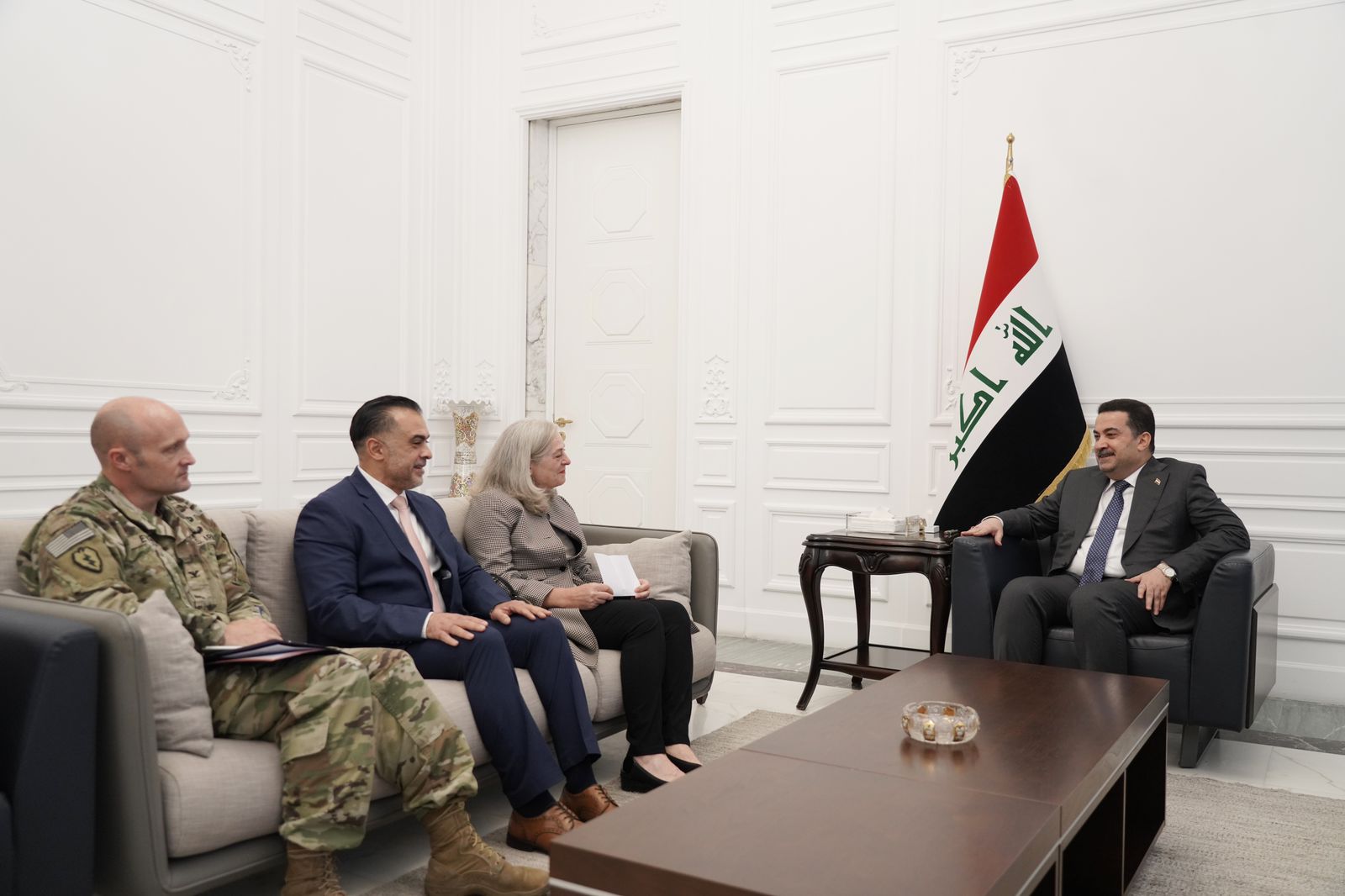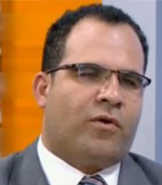The new Iraqi Prime Minister, Mohamed Al-Soudani, declared in his government’s first press conference early November that he has been delegated by the various powers in Iraq to conduct a dialogue with the international alliance led by the US regarding the need for their presence in Iraq. The US Ambassador to Iraq, Alina Romanowski, in turn replied firmly that her country’s forces would not be leaving Iraq.
These stances illustrate tensions in the relationship between the new Iraqi government and the US, which are related to escalating tensions between the US and Iran. Iraq has, since 2003, been seen as an arena for the confrontation between those two countries, both using it to settle scores. The former Iraqi prime minister, Mostafa Alkazmy, had sought to change this situation, to convince both sides not to use Iraq as a battleground.
It is likely that the new Iraqi Prime Minister will face challenges in trying to achieve this objective, although he means to rely on the same methods. Al-Soudani declared that the reexamination of the need for US troops would be conducted through a dialogue, that will encompass the presence of all the US led International Coalition forces, still supported by German, British and other Western forces.
The Iraqi Prime Minister’s statements did not allude directly to ending the military presence of the International Coalition, but to ascertaining the need for consultants and training, but the US Ambassador’s response put the matter in a different context, and implied Iraq was seeking to bring US presence to an end. It is likely that the US response, affirming continued US presence, reflects US stances towards not only Iraq, but the region as a whole, and other regional players, especially Iran.
The US appears to be seeking to discover the extent of relations between the new government and Iran, and what the latter’s agenda towards this government is. It must be noted that the government’s stance towards this particular issue has traditionally reflected the position of the Iraqi political forces that can influence it. The Coordination Framework, comprising several Shiite factions, is the principal backer of this current government, and is opposed to the presence of US forces in Iraq.
There have been reports in Arab media, quoting Iraqi sources, that the US made a compromise proposal to the new government, in order to explore its stances towards the US. The reports indicate that the US Ambassador offered to make an arrangement with the Coordination Framework, including the rehabilitation and acceptance of their affiliated militias, in return for rescinding the law prohibiting normalization of relations with Israel, which was backed by the Sadrists block led by Muqtada Al-Sadr. While the reports indicated the government would put the matter before parliament, this seems unlikely, as the Coordination forces agree with the Sadrist position on this issue. Even if the issue was in fact put to parliament, it would probably affirm its support for the law, and it would be extremely unlikely to change it.
The US position regarding its military presence in Iraq appears hypocritical to the Iraqis, as it argues this presence is necessary to combat terrorism and support Iraqi forces, which were the same arguments it had used to justify its presence in Afghanistan, yet it decided to withdraw from the latter but refuses to leave Iraq. American reports quoting US diplomats and officials in the Biden Administration indicate US reluctance to see a repeat of the chaotic Afghan scenario in Iraq, and that moreover certain Iraqi parties, specifically Sunnis and Kurds, have expressed their wishes for US forces to remain in Iraq, fearing how a withdrawal would impact their status.
Iran for its part also has a complex and contradictory stance towards US presence in Iraq. On the one hand, these forces are a convenient target for its proxy forces, and a means through which to inflict costs on the US for its sanctions on Iran, especially as negotiations in Vienna are floundering. On the other hand, Iran is exerting pressure, through affiliated political forces in Iraq, to end US military presence, to illustrate that the US is not welcome there.
Future scenario
It appears likely that US-Iranian confrontation in Iraq will continue, thereby putting the new Iraqi government in a difficult position. Most previous Iraqi governments, even those close to Iran, have sought to carve out a balancing position between the two conflicting parties. While the current government is likely to make the same attempt, it will be especially challenged in view of rising tensions.
Although both Iraq and the US have expressed willingness to enter into a dialogue, between the prime minister and the US ambassador, as well as through the mechanism of strategic dialogue adopted by the former prime minister, there is a wide divergence of views between the two sides, which will make relations difficult. Moreover, while Al-Soudani does not wish a confrontation with the US, his efforts to achieve some form of balancing stance will be complicated by intensifying US-Iran tensions, as the later accuses the US of supporting popular protests in Iran, and negotiations in Vienna are not progressing. This tense situation will impede the Iraqi government’s ability to adopt a balancing stance.
This difficult situation was highlighted by the death a US teacher in Iraq, with accusations being leveled against Iran from unofficial US sources. Many in Iraq believe there will likely be further similar incidents, as reported by the local newspaper “El Mada”, indicating the situation in Iraq is likely to become even more heated. This will likely prompt the prime minister to actively engage in strategic dialogue with the US, in an attempt to bring some calm to the Iraqi political scene after a rather tumultuous period.
Tensions between Iran and the US are also likely to cast a shadow on regional developments, as the US embarks on restructuring its military presence in the region as a whole, as reflected in new arrangements regarding US Central Command in the Middle East and not just the Gulf. There are also political aspects to these new arrangements, and Iraq’s stance in opposing peace agreements with Israel will likely hamper these arrangements. Iran, on its part is aware these new arrangements are aimed at reducing its regional influence, for which Iraq is a cornerstone. It is through Iraq that Iranian weapons and militias cross into Syria, and Iraqi militias provide support to Houthis militias in Yemen. The US has on occasion officially alluded to Iran using Iraq as a base to threaten neighboring countries.
Impact of tensions
In sum, rising tensions between the US and Iran are likely to reflect negatively on Iraq. The new government will be obliged to allocate much of its attention to trying to manage the fallout, which is likely to extend to its domestic political scene. Moreover, there will be implications for Iraq’s security, as the US will find further justification to stay in Iraq, to defend its own citizens and interests, blaming Iran for attacking them. Iran, on its part, is likely to continue to seek revenge by attacking US targets with all the tools it has in Iraq, regardless of how close it is to the current government. and agents it possesses in Iraq, regardless of the extent of its relations with the Iraqi government.
US military presence in Iraq will remain contingent on its foreign policy in the region, and the priorities of US interests there. While its role in the fight against terrorism cannot be underestimated, local observers hold it responsible for Iraq’s inability, nearly two decades after the US invasion, to confront such threats without the need for external support. US reports indicate US support in training, intelligence gathering, and air operations remain necessary, and that Iraqi forces alone cannot carry out these tasks. This weakness has allowed Iran to build parallel security forces.
Ending US military presence in Iraq will upset the political and security balance created by US policies there since the invasion of 2003. The most pressing fear at present is continued escalation between the US and Iran, which will come at a high cost for Iraq, and could keep it in the vicious cycle of disorder it has been actively seeking to end.


